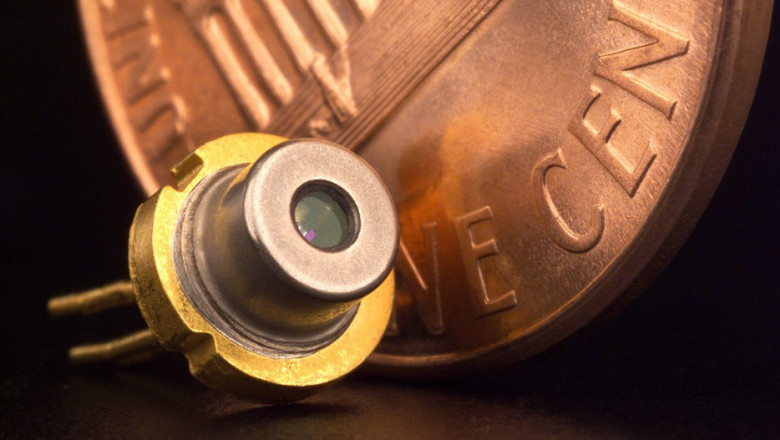views
Laser diodes are a crucial component in modern laser technology, widely used in various industries, including telecommunications, medical devices, consumer electronics, and industrial applications. Unlike traditional lasers, laser diodes offer compact size, energy efficiency, and cost-effectiveness, making them the preferred choice for many applications.
What is a Laser Diode?
A laser diode is a semiconductor device that emits coherent light through a process called electroluminescence. It operates on the principle of electron-hole recombination, where electrons and holes combine within the semiconductor material to produce photons, leading to laser emission. The emitted light is highly directional, monochromatic, and coherent, making laser diodes suitable for precision applications.
Types of Laser Diodes
Laser diodes come in various types, each suited for specific applications:
-
Fabry-Pérot Laser Diodes – The most common type, used in barcode scanners, laser pointers, and fiber optic communications.
-
Distributed Feedback (DFB) Laser Diodes – These provide stable wavelengths and are ideal for high-speed optical communication.
-
Vertical Cavity Surface Emitting Lasers (VCSELs) – Used in facial recognition systems, optical sensors, and high-speed data transmission.
-
Quantum Cascade Lasers (QCLs) – Suitable for spectroscopy and medical diagnostics.
-
Blue and Green Laser Diodes – Used in laser projectors, biomedical applications, and display technologies.
Applications of Laser Diodes
Laser diodes are widely used in numerous industries due to their efficiency and versatility. Some key applications include:
-
Telecommunications: Laser diodes play a vital role in fiber optic communication, enabling high-speed data transmission over long distances.
-
Medical Industry: Used in laser surgery, skin treatments, and diagnostic equipment.
-
Consumer Electronics: Found in CD/DVD/Blu-ray players, barcode scanners, and optical mice.
-
Industrial Manufacturing: Used in laser cutting, engraving, and welding processes.
-
Military and Defense: Applied in range-finding, target designation, and secure communication systems.
Advantages of Laser Diodes
Compared to other laser technologies, laser diodes offer several benefits:
-
Compact and Lightweight: Their small size makes them easy to integrate into electronic devices.
-
Energy Efficient: They require lower power consumption while delivering high output.
-
Cost-Effective: Manufacturing laser diodes is relatively inexpensive compared to gas and solid-state lasers.
-
Long Lifespan: With proper handling, laser diodes can last thousands of hours.
-
Fast Modulation Capability: They can switch on and off rapidly, making them suitable for high-speed communication.
Future of Laser Diodes
As technology advances, laser diodes are expected to become even more efficient and versatile. Emerging applications such as quantum computing, LiDAR (Light Detection and Ranging) for autonomous vehicles, and advanced medical diagnostics are set to drive further innovation in laser diode technology.
Conclusion
Laser diodes are indispensable in today's technology-driven world. Their compact design, efficiency, and broad range of applications make them a fundamental component of modern electronics and industrial systems. With continuous research and development, laser diodes will continue to revolutionize various industries, paving the way for more advanced and efficient laser-based solutions














Comments
0 comment